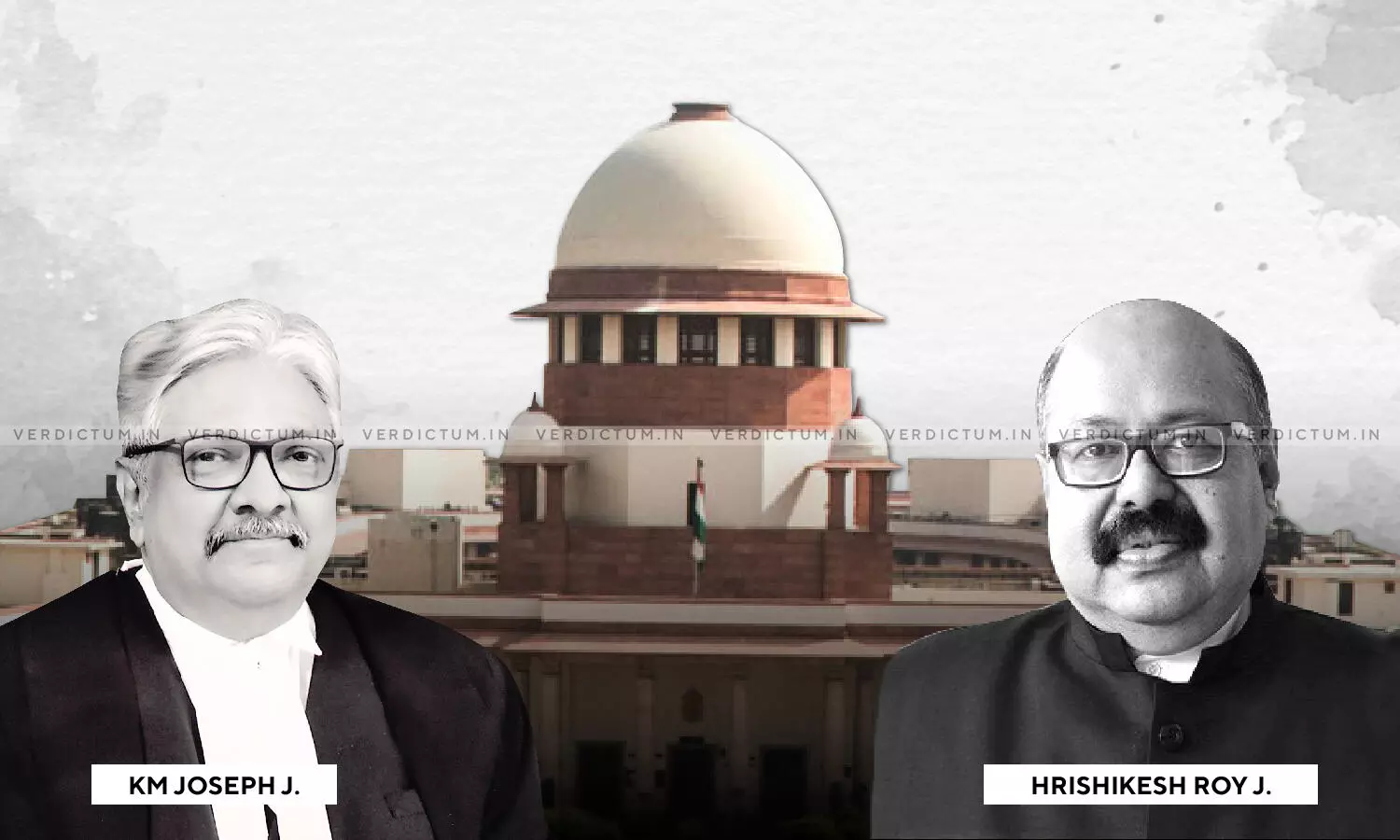
Deficiency Of Jurisdiction Of Authority Cannot Be Cured By Consent Of Parties: SC In Property Dispute
 |
|The Supreme Court has recently observed that if an authority exercises powers despite lacking jurisdiction under a special Act, any order or decree so passed through such unlawful exercise of power, will be a legal nullity. The Court further stated that such lack of jurisdiction of the authority cannot be cured by the consent of the parties.
In that context, the Bench of Justice KM Joseph and Justice Hrishikesh Roy noted "In cases where the authority lacked jurisdiction under a special Act and yet exercises powers, without authority of law, any order or decree so passed through such unlawful exercise of power, will be a legal nullity. The deficiency of jurisdiction of the authority cannot be cured by the consent of the parties. The challenge to such an incompetent order could be set up wherever it is sought to be enforced or relied upon, even in execution or in collateral proceedings."
The Court was adjudicating upon an appeal against the judgment and order of the Division Bench of the High Court of Jammu & Kashmir at Srinagar which had upheld the Order of the District Judge whereby a decree for possession of land was passed in favour of the plaintiff-respondent and against the defendants-appellants.
The appellants are the natural son and daughter of one late S. Sucha Singh whereas the respondent/plaintiff S. Prithpal Singh claimed to be the adopted son of Sucha Singh.
A civil Suit was initially instituted by Prithpal Singh before the Jammu & Kashmir High Court, for declaration and possession of Sucha Singh's land and it was claimed in the Suit by the adopted son that the appellants have forcibly dispossessed him from the land claimed in the Suit. He founded his claim over the land on the basis of the compromise deed between himself and one Abdul Jalil Khan
The Suit filed before the High Court was transferred in 1995 to the Court of the District Judge, Anantnag where the appellants filed their written statement stating, inter alia, that the compromise and the order passed thereon by the Deputy Commissioner, was without jurisdiction and the same did not confer any right on the plaintiff.
The District Judge passed a decree for possession of land in favour of the plaintiff-respondent and against the defendants-appellants. The appeal before the Single Judge of the High Court was dismissed.
When the matter was put before the Division Bench, the Bench noted that the owner of the land Sucha Singh had acknowledged the compromise deed which recorded the respective ownership of the tenant Abdul Jalil Khan and the plaintiff, for the concerned portions of the land of Sucha Singh.
On the issue of the transfer of land being without a registered document, the High Court observed that the instrument of compromise where a tenant accepts that his landlord is in possession of certain land over which the tenant makes no claim and surrenders his tenancy, would not require registration. Therefore the appeal was dismissed.
Aggrieved the appellants approached Supreme Court.
Senior Advocate Huzefa A. Ahmadi, appeared for the appellants and Senior Advocate S.N. Bhat, appeared for the respondent (plaintiff).
The Court observed thus "…it is clear that a mere affirmation in the context of revenue records and personal cultivation rights cannot be interpreted as an intention of Sucha Singh to confer title upon the Plaintiff. With his endorsement on the compromise, Sucha Singh perhaps intended to give the right of personal cultivation but the same does not in any manner suggest that Sucha Singh had intended to confer title on the plaintiff."
On the plea that compromise was a family arrangement, the Court noted that the compromise was not amongst family members but between the plaintiff and the tenant – Jalil Khan (not a family member). The Court opined that he could not have been a party to a so called "family arrangement". Therefore, the Court held that documents in question would require registration and it cannot be treated as a family arrangement.
The Court stated that the compromise was required to be registered, under Section 49 of the Registration Act, 1977 and also under Section 138 of the J&K Transfer of Property Act and without such registration no title can fructify for the plaintiff.
The Court also observed that the Deputy Commissioner lacked inherent jurisdiction to either entertain the appeal or endorse the compromise.
"The 1972 Act as noted earlier, was suspended during 25.03.1975 to 30.03.1976 and during this period the Compromise was recorded on 18.12.1975 and the 24.12.1975 Order was passed by the DC. The power exercised for these orders are traceable to the suspended provisions of the Act.", the Court noted.
"Thus, the DC, in our mind lacked inherent jurisdiction to either entertain the appeal or endorse the compromise during the suspended phase.", the Court held.
Therefore the Court set aside the decree passed in favour of the respondent (Plaintiff) in respect of the land in question.
Cause Title- S. Kuldeep Singh & Anr. v. Prithpal Singh
Click here to read/download the Judgment